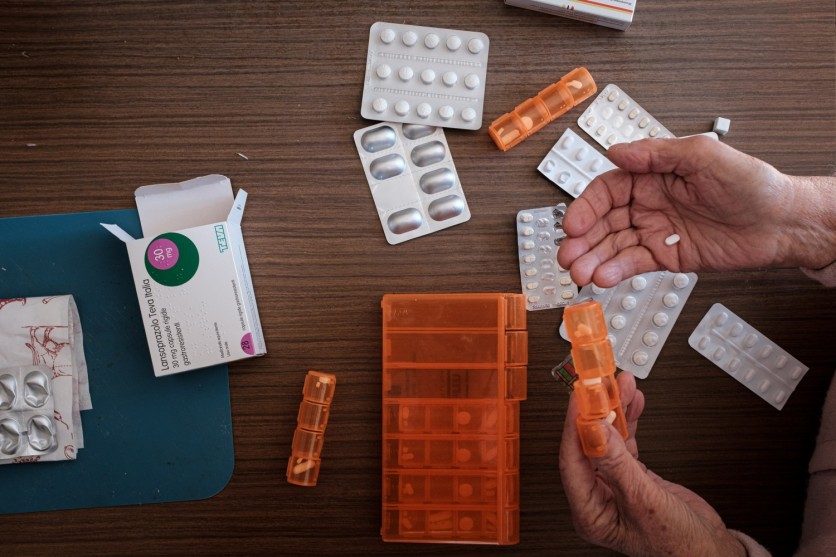A treatment for COVID-19 is like a Holy Grail. As cases surpass 1.8 million worldwide, a proven therapy would immediately provide relief from the massive burden of the disease. Progress might additionally ease the minds of everyone looking forward to a release from isolation measures designed to include the novel coronavirus' spread.

There is no authorized drug treatment for COVID-19 yet, but there are promising irons in the fire. And no, they are not all called "chloroquine."
These treatments could all be the answer to the coronavirus.
ALSO READ: COVID-19 Cure? Coronavirus Patients Come Forward to Reveal Hydroxychloroquine Saved their Lives
Chloroquine and Hydroxychloroquine
Chloroquine, and its much less-toxic by-product hydroxychloroquine, are both anti-malarial drugs. They also are used to deal with autoimmune sicknesses like lupus or rheumatoid arthritis.
How these drugs to combat coronavirus is an issue of heated debate. But these medications would prevent coronavirus from attaching to human cells, stopping the virus from entering cell cytoplasm, and making copies of itself.
Anecdotal reports suggest these tablets were powerful in treating COVID-19 patients in China. Based on that initial evidence, the pair became a part of the sixth edition of the country's national treatment guide for COVID-19.
In America alone, these tablets are a problem to at least several medical trials. They are a part of the WHO SOLIDARITY tests -- international research designed to test promising drug candidates for coronavirus.
ALSO READ: Coronavirus Update: FDA Gives Anti-Malaria Drugs Emergency Approval to Treat COVID-19
EIDD-2801
Unlike the other capsules, EIDD-2801 is a brand new drug candidate, unveiled in a Science Translational Medicine research published on April 6.
Mice inflamed with the coronaviruses that reason SARS and MERS had decreased viral load and progressed lung feature after treatment with EIDD-2801, the consequences propose. And in human lung cells infected with SARS-Cov-2, the drug is "potently antiviral," the researchers report.
The remedy might fit in coronaviruses that are immune to Remdesivir, the researchers said in another investigation.
But it is a mouse and cell model study, no longer a scientific trial. As a result, any promise is extremely premature, and studies in human beings have no longer began yet. The United States Food and Drug Administration has given the group permission to perform clinical trials, however, so keep an eye on this one.
Favipiravir
Favipiravir is an antiviral drug advanced in Japan, where it's far used to treat the flu. The drug attacks the molecular machine the coronavirus desires to duplicate once in the cell.
Favipiravir is coming into scientific trials in the US. There, it is going to be examined on 50 COVID-19 patients at Brigham and Women's sanatorium in Boston. But the preclinical information in this drug is inconsistent.
A preliminary trial published in April (not peer-reviewed) discovered that the drug improves cough signs. However, it isn't always any better at its job than some other flu medication, arbidol. Arbidol is not available in the US.
Hydroxychloroquine and Azithromycin
Perhaps the most known study on hydroxychloroquine was posted on March 20 in The International Journal of Antimicrobial Agents. Researchers said a cocktail of both medicines cleared viral infections in six confirmed COVID-19 patients. The consequences sparked hype in social media and gained President Trump's endorsement.
But the research has been questioned by the journal's personal editors. The CDC eliminated all its findings from its remedy guidelines internet site on April 7.
The drug still has the FDA's approval for use in emergency situations, inclusive of treating coronavirus patients who have no other options left.
Ongoing medical trials will assist settle the technological know-how on azithromycin and hydroxychloroquine. Pfizer, the manufacturer of Zithromax (a brand-name for azithromycin), has additionally devoted to publishing their statistics on the drug to speed research efforts.
Lopinavir and Ritonavir
Lopinavir and Ritonavir are both HIV medications. They are of interest due to the fact these capsules forestall the HIV virus from making the proteins it wishes to live on and replicate.
Because the novel coronavirus is also a single-stranded RNA virus (like HIV), these drugs look like logical candidates, Heavner says.
But a medical trial published March 18 in the New England Journal of Medicine indicates otherwise. COVID-19 patients who took these capsules had comparable viral loads before and after remedy, and there was no exchange in phrases of mortality in comparison to folks that received the normal trendy of care.
Remdesivir
Remdesivir is an anti-viral drug first examined as an Ebola remedy. It failed to work for the said treatment. However, a letter published in February 2020 in the journal Nature shows the drug might be "highly effective" in stopping SARS-Cov-2 from replicating inside the cell.
Remdesivir is the point of interest in some of the large-scale medical trials. These consist of the World Health Organization's SOLIDARITY trial. It is likewise the subject of a United States' National Institutes of Health scientific trial. Two other scientific trials in China are expected to release facts in past due April.
ALSO READ: COVID-19 Drug Update: What's The Real Coronavirus Cure?
Tocilizumab
Tocilizumab usually treats rheumatoid arthritis. However, it can assist the goal of the immune system's response to SARS-Cov-2.
Specifically, the drug goals a sign of inflammation called interleukin 6 (IL-6). That marker is "abnormally excessive in sufferers with the most severe signs and symptoms of COVID-19."
The drug is a monoclonal antibody; this means it is made of antibodies that the body clearly produces to fight pathogens (greater on that later). These antibodies are not specific to COVID-19. However, so far, the drug indicates software in treating the disease.
Preliminary research from China (not peer-reviewed), determined that critically sick patients given tocilizumab required much less supplemental oxygen than those that did not acquire the drug. It has also been delivered to China's national remedy guideline for the virus.
Meanwhile, scientists, and the relaxation of the world, await the consequences of a randomized managed medical trial. A trial in China is ongoing and another in the United States.
![Apple Watch Series 10 [GPS 42mm]](https://d.techtimes.com/en/full/453899/apple-watch-series-10-gps-42mm.jpg?w=184&h=103&f=9fb3c2ea2db928c663d1d2eadbcb3e52)



